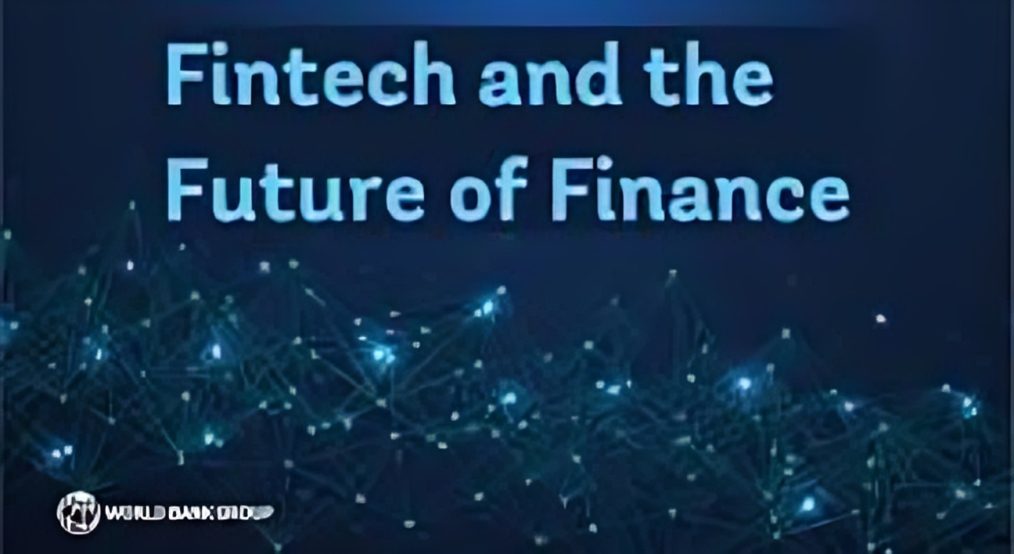The Future of Fintech in the UK

The fintech landscape in the UK is at an exciting juncture, with innovation and technology reshaping the future of finance. As we delve into the key trends shaping this future, it’s clear that the UK is poised to remain at the forefront of the fintech revolution.
UK Fintech Evolution
The journey of fintech in the UK is a story of rapid growth and innovation. From the early days of online banking to the rise of blockchain and cryptocurrencies, the UK’s fintech sector has consistently led the way in transforming financial services.
- Historical milestones: The launch of the first internet bank in the late 1990s to the emergence of mobile payments and digital wallets marked the beginning of a new era in banking. These innovations laid the groundwork for what would become a booming fintech industry, characterized by a relentless pursuit of efficiency, accessibility, and security.
- Impact on the financial industry: Fintech innovations have democratized access to financial services, making them more accessible and efficient. They’ve challenged traditional banking models, forcing established institutions to innovate or face obsolescence. The result has been a more competitive market, improved customer service, and the creation of new financial products that meet the diverse needs of today’s consumers.
Digital Banking Trends
The rise of neobanks and digital-only banking models is a testament to the changing consumer preferences towards online banking.
- Growth of digital banks: Companies like Monzo, Revolut, and Starling Bank have not just entered the market; they’ve revolutionized it. By offering user-friendly interfaces, lower fees, and innovative features, these digital banks cater to a tech-savvy generation that values convenience and transparency.
- Consumer behavior shift: There’s a growing demand for convenient, 24/7 banking services accessible from anywhere. This shift is not just about the technology but also reflects a broader change in societal expectations. Consumers now expect instant access to their financial information, real-time transactions, and personalized banking experiences.
Blockchain and Cryptocurrency Growth
Blockchain technology and cryptocurrencies are set to play pivotal roles in the future of fintech.
- Secure transactions: Blockchain offers a secure, transparent way to conduct financial transactions. Its decentralized nature eliminates the need for traditional intermediaries, reducing costs and increasing efficiency. This technology is not just transforming payments but also has the potential to revolutionize areas like property ownership and identity verification.
- Adoption trends: Cryptocurrencies are gaining acceptance, not just as investment vehicles but also as payment methods. The UK has seen a surge in crypto exchanges and wallets, indicating a growing comfort with digital currencies. As regulatory frameworks evolve, we can expect to see cryptocurrencies play an increasingly mainstream role in finance.
Regulatory Environment and Financial Regulations
The regulatory framework in the UK has been supportive of fintech innovation, with initiatives like the Regulatory Sandbox allowing startups to test new products in a controlled environment.
- Future regulatory trends: The UK’s approach to fintech regulation has been characterized by a desire to promote innovation while protecting consumers. Looking ahead, we can anticipate regulations that adapt to new technologies such as AI and blockchain, ensuring that the UK remains a safe and attractive place for fintech companies to thrive.
Fintech Startups and Investment Surge
UK fintech startups are attracting significant investment, signaling strong confidence in their potential to disrupt the financial sector.
- Success stories: Companies such as TransferWise (now Wise) and Funding Circle have shown that UK fintech can compete on a global stage. These firms have not only attracted billions in investment but have also expanded internationally, demonstrating the global appeal of UK fintech innovation.
- Venture capital trends: Investment in fintech startups is at an all-time high, fueling further innovation. This surge in funding reflects investors’ confidence in the sector’s potential for long-term growth. It’s not just about the amount of money flowing into the sector but also about the diversity of investments, spanning everything from payments and lending to insurtech and regtech.
Innovations in Payment Solutions and Mobile Banking
Payment technologies and mobile banking are areas of intense innovation, driven by AI and machine learning.
- Mobile wallet usage: The convenience of mobile payments is changing how consumers transact daily. With just a few taps on a smartphone, users can make purchases, transfer money, and manage their finances. This shift towards mobile wallets is supported by the widespread adoption of NFC technology and the increasing security of mobile transactions.
- AI in banking: Personalized banking experiences are becoming the norm, thanks to AI. From chatbots that offer 24/7 customer service to algorithms that provide personalized financial advice, AI is making banking more responsive to individual needs. This technology is also behind the scenes, improving risk assessment, fraud detection, and operational efficiency.
The Role of AI and Data Analytics in Finance
AI and data analytics are revolutionizing the way financial services operate, offering unprecedented insights and efficiency.
- AI-driven innovations: The advent of robo-advisors has democratized access to investment advice, making it more affordable and accessible to a broader audience. These automated platforms use algorithms to provide personalized investment recommendations based on the user’s financial situation and goals. Similarly, AI chatbots have transformed customer service, offering instant responses to customer inquiries and improving overall satisfaction.
- Data analytics in finance: Beyond customer service, data analytics play a crucial role in understanding market trends, customer behavior, and risk management. Financial institutions can leverage big data to make more informed decisions, from tailoring products to individual customer needs to detecting and preventing fraud. The ability to analyze vast amounts of data in real time is a game-changer for the industry, enabling more proactive and predictive approaches to finance.
Cybersecurity Measures in Fintech
As fintech continues to evolve, the importance of robust cybersecurity measures cannot be overstated. Protecting sensitive financial data against cyber threats is paramount.
- Emerging technologies: The fintech sector is at the forefront of adopting cutting-edge technologies to enhance cybersecurity. Blockchain, for example, offers a secure and tamper-proof ledger for transactions, reducing the risk of fraud. Similarly, the use of biometric authentication methods, such as fingerprint and facial recognition, adds an extra layer of security to fintech applications, ensuring that only authorized users can access their accounts.
- Regulatory compliance: Fintech companies must navigate a complex regulatory landscape, adhering to stringent data protection and privacy laws. The General Data Protection Regulation (GDPR) in the EU, and similar regulations in other jurisdictions, mandate strict controls on how personal data is collected, stored, and processed. Compliance is not just a legal requirement but also a trust signal to customers that their data is in safe hands.
The Future of Financial Inclusion and Consumer Trends
Fintech has the potential to bridge the financial inclusion gap, offering services to those traditionally underserved by the banking sector.
- Enhancing accessibility: Digital platforms and mobile technology have made financial services more accessible than ever before. In remote or underserved areas, where traditional banking infrastructure may be lacking, fintech provides a lifeline, offering basic financial services through mobile phones. This accessibility is crucial for promoting financial inclusion, allowing more people to participate in the economy and improve their financial well-being.
- Changing consumer expectations: The fintech revolution has raised the bar for what consumers expect from their financial service providers. Today’s consumers seek not only convenience and efficiency but also transparency, personalization, and control over their financial lives. Fintech companies are responding by offering more user-centric services, from real-time spending analytics to customizable financial products. This shift towards more personalized and empowering financial services is likely to continue, driven by technological advancements and changing consumer demands.
Global Influence and the UK’s Position in Fintech
The UK’s fintech scene is a beacon of innovation and excellence, influencing the global fintech landscape.
- UK’s global fintech leadership: The UK’s regulatory environment, talent pool, and vibrant startup ecosystem have established it as a global leader in fintech. London, in particular, is often cited as a fintech capital, home to a dynamic community of fintech firms, investors, and accelerators. The UK’s approach to fostering innovation while ensuring robust consumer protection serves as a model for other countries looking to support their fintech sectors.
- International collaborations: The future of fintech is inherently global, with cross-border payments, remittances, and digital currencies breaking down financial barriers. The UK is at the heart of this global network, forming strategic partnerships and alliances with fintech hubs around the world. These collaborations not only facilitate the exchange of ideas and best practices but also open up new markets for UK fintech firms, contributing to the sector’s global growth and influence.
Conclusion
The future of fintech in the UK is not just promising; it’s already unfolding before our eyes. With its rich history of innovation, supportive regulatory framework, and dynamic ecosystem, the UK is well-positioned to lead the next wave of fintech evolution. As we look ahead, the continued convergence of technology and finance promises to bring even more exciting developments, transforming how we bank, invest, and manage our financial lives.
Dive into a universe brimming with enlightening and captivating articles across a wide spectrum of subjects, encompassing everything from health and wellness insights to cutting-edge developments in sustainability and lifestyle innovations. Navigate your way to LondonScope.co.uk and LondonPedia.co.uk for a treasure trove of articles, comprehensive guides, and authoritative opinions crafted to educate, inform, and spark inspiration among readers.
Engage with Us: We invite you to share your thoughts on the future of fintech in the UK. What trends do you think will have the biggest impact? How do you see fintech shaping the future of finance? Join the conversation in the comments below and follow our blog for more insights into the ever-evolving world of fintech.




